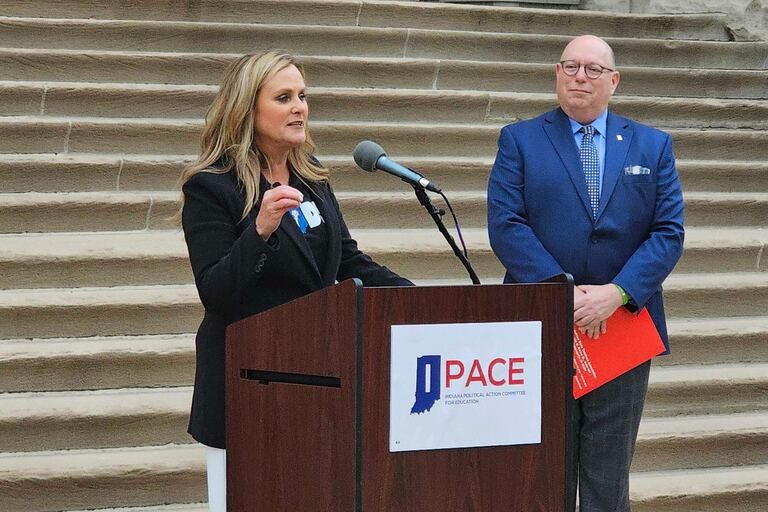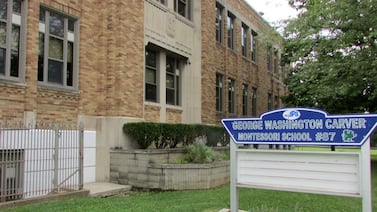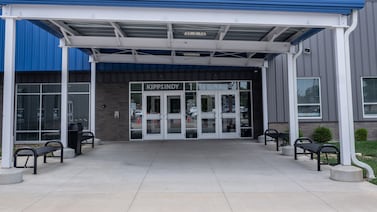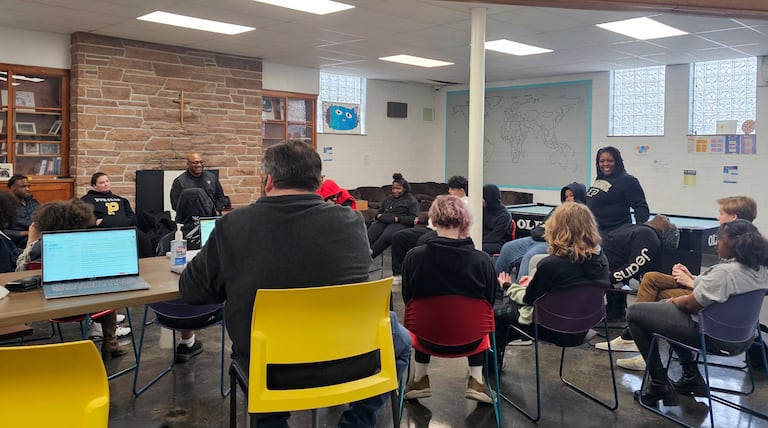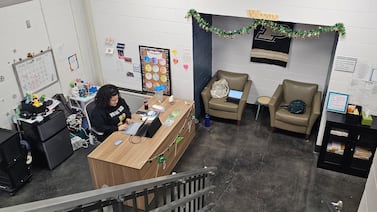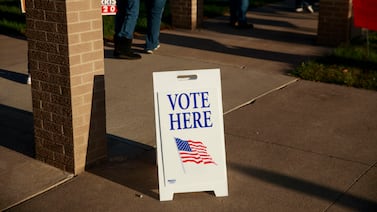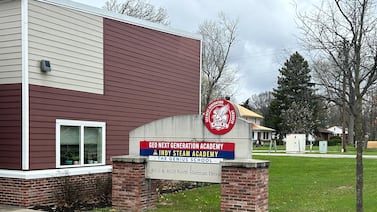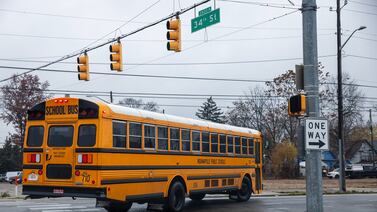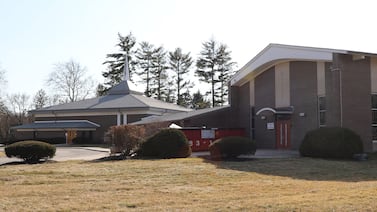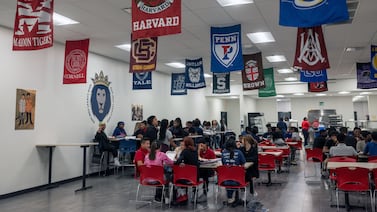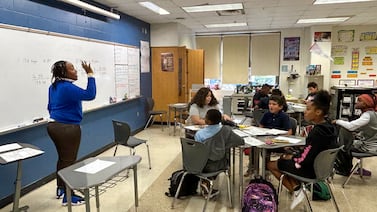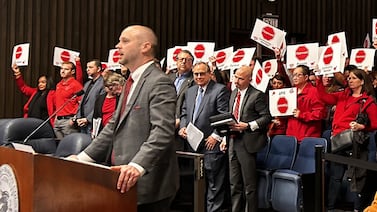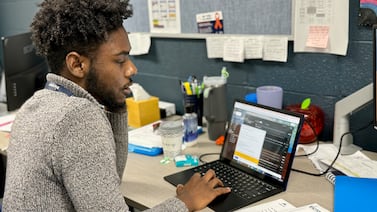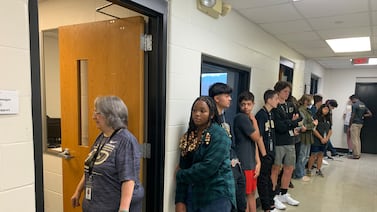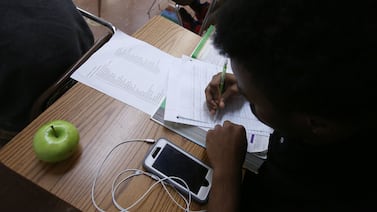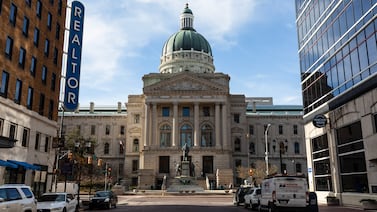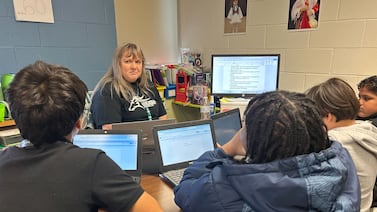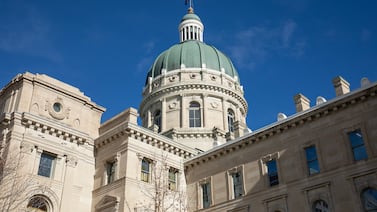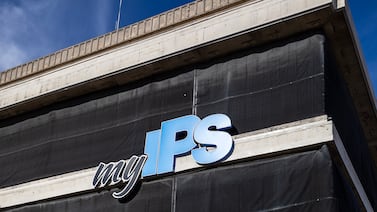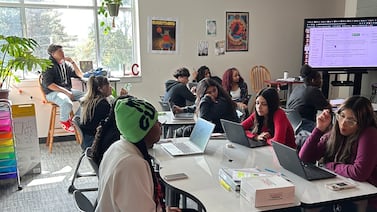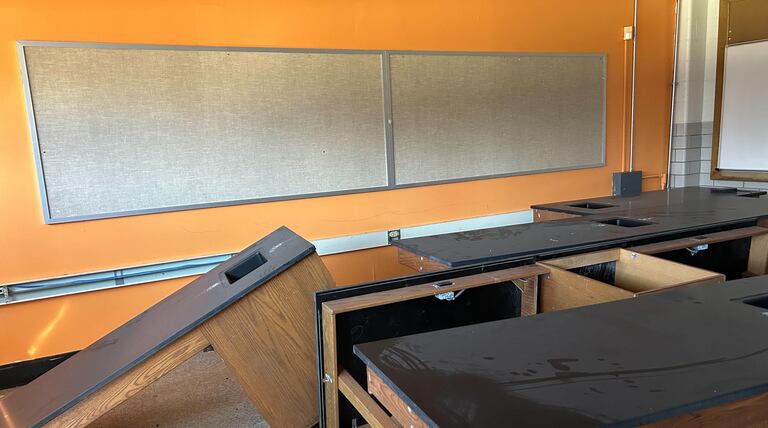McCormick vowed to fight portrayals of public education as a boogeyman, as Indiana Republicans lean into support for school choice.
Supporters of the statute say it will help students by making sure they learn about a variety of viewpoints. Critics argue it will intimidate professors and make prospective teachers less prepared to run classrooms well.
The lawsuit alleges that a teacher at George Washington Carver Montessori School 87 encouraged students to attack a 7-year-old fellow student with a disability.
The plan to transfer ownership of the School 110 building dovetails with the district’s expected renewal of its Innovation Network agreements with KIPP Indy.
The video of one student hitting another is connected to a lawsuit alleging ongoing abuse was ignored by School 87, according to attorneys involved in the suit. IPS says it takes student safety seriously and reacted to the situation swiftly.
Lawmakers could revive a plan to let all parents use Education Scholarship Accounts on classes, tutoring, extracurricular activities, and more.
Purdue Polytechnic High School Lab School offers personalized curriculum to around 20 students while getting support from the charter school network.
With federal pandemic aid for schools expiring, the schools say the additional operating funding would be crucial for students and staff.
Secretary of Education Katie Jenner said the goal is to identify which children need additional support in their early years.
The school had a rocky history in Indianapolis Public Schools but can now take advantage of the growing number of students who are eligible for vouchers.
Families will be required to opt in to transportation next school year. The changes come as the district continues its Rebuilding Stronger overhaul.
At the Crispus Attucks Museum, residents celebrated the eclipse with a program that also honored African traditions and ancestry.
The move by the Genius School comes after the charter authorizer overseeing it put it on probation and another authorizer rejected its bid for a new charter.
The approval caps months of controversy about the opening of the all-girls school.
The state’s FAFSA completion rates have dipped from a year ago, but there’s still time to fill out the FAFSA before a key April 15 deadline.
The six candidates answered questions on education savings accounts, teacher salaries, learning loss and life after high school.
IPS predicts a slight increase in enrollment next year but still anticipates a cash crunch in roughly three years.
Michele Whaley, a school social worker at Eleanor Skillen School 34, shares how one person can have a big impact on a student.
Become a Chalkbeat sponsor
Find your next education job.
The charter school’s building needs to be rezoned to open and going to the Indianapolis City-County Council is the next step.
As grant funding ends, the programs are seeking support to pay tutors and help more high school kids with ‘getting their creativity out.‘
Fewer than 1 in 10 Indiana students who enroll in community college go on to earn degrees from 4-year institutions.
The school hasn't yet found a location on the west side. Two other charters in Indianapolis meanwhile, still plan to open in the fall.
There are some exceptions to the cell phone ban, like if a student needs it to manage their health or the device is part of their Individualized Education Program.
Big changes are ahead for schools, including more support for reading, stricter third grade retention rules, and cellphone bans.
District officials want instruction to be more consistent across school buildings. Staffing will be a challenge.
House and Senate lawmakers removed a proposal to allow chaplains in public schools, but schools would still be required to release students for off-campus religious instruction.
To open, the charter school needs to rezone its former church building in Washington Township from religious to education.
The district also plans to merge its Simon Youth Academy with another alternative education program at Arsenal Technical High School.
A bill at the Indiana Statehouse that aims to hold back more students who fail the state’s reading exam, is advancing. Here’s what its impact could be.
A revised bill targeting absenteeism would require schools to prohibit habitually truant students from extracurricular activities, and would also impose a penalty on parents who make unproven allegations against teachers.
The school would open within the boundaries of Washington Township Schools.
One bill has been stripped of language on civics education to instead focus on allowing chaplains in public schools.
The Indianapolis charter school on the far eastside recently celebrated its new food lab and launched a culinary club, which hopes to take inspiration from a civil rights story.
Advocates say a bill to retain third graders could violate the civil rights of 93,000 English learners and conflicts with research on how long it takes to learn a language.
A remote working option for teachers and shared educators between schools are some of the options to address the ‘pain points’ of teaching.
The awards are funded by a $12.5 million trust set up by an anonymous donor couple.
The play will show throughout All-Star Weekend, highlighting how one Indianapolis Public Schools basketball team made history as the nation struggled with civil rights.

